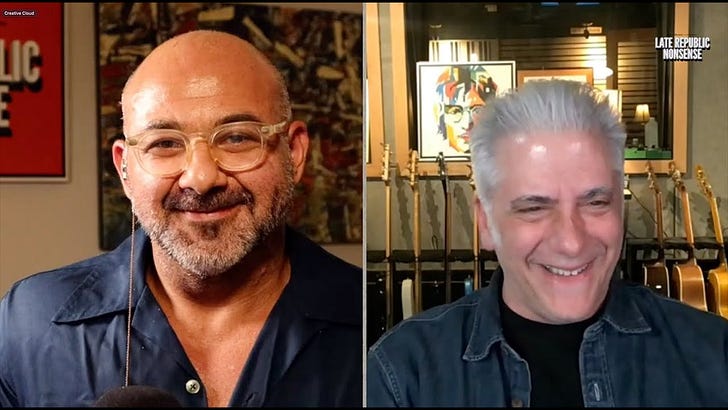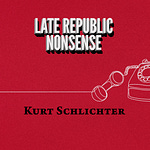Episode 15: Rick Beato
For as much as I complain about the modern, digital world, I’m very fond of the little algorithm that lives inside my iPhone, serving me YouTube videos based on things I’ve watched. One day, while driving, it suggested I watch an episode of something called, “What Makes This Song Great.” There was a picture of 70s, classic-era Stevie Wonder with cornrows. I clicked to watch the clip—mostly listening, but looking down to watch the video every once in a while.
There was a middle-aged guy with white hair, grinning broadly as he disected and analyzed nearly every track of “Superstition”: the pile of EQ’d clavinets, the drums, the horns, all of it. He talked about the way the song was constructed, and even played along with some of the parts on piano. The effect was like taking a tour of the inside of a great song with a master tour guide: someone who visited the museum on his days off, just to marvel at the artwork and be inspired.
Friends who love music pass around Rick Beato’s videos. Rick spent a long time as a record producer and as an educator, and it’s clear that that kind of expertise—together with his positive, open and inquisitive personality—are the responsible for his great success. Rick and I became friends a while back, and have spent a lot of time talking and texting about music and much else. A more genuine, positive and supportive guy you won’t find.
The other day, I heard a clip of Jordan Peterson talking about music at the boundary of chaos and order, and I knew I needed to talk to Rick about it. We ended up discussing so many things. If you’re a fan of his videos—or just like to hear two guys talking about music—don’t miss this.
Intro Music
While we talked, Rick and I discussed “Passion Dance,” off McCoy Tyner’s Blue Note album, The Real McCoy. There had been a three-year gap between Tyner’s very elegant and mannered trio album Plays Ellington (Impulse!) and this record. The pianist had spent the intervening years recording and touring with John Coltrane as he pulled his music farther and farther into the avant-garde.
It’s commonly understood that Tyner and drummer Elvin Jones quit the band at the same time in 1965, unsatisfied with (among other things) the ever-increasing decibel levels of Trane’s conception. After leaving the epochal quartet, Tyner became a fixture on Blue Note, playing on recordings with Wayne Shorter, Freddie Hubbard, Hank Mobley, Lee Morgan, Stanley Turrentine and others.
By April 1967, Tyner was ready to enter the studio and make his own quartet recording. He chose Joe Henderson, who’d been a fixture on Blue Note but was, compared to Coltrane, something of a young lion. Henderson offered Tyner a taste of the avant-garde, but with feet firmly planted in tonality and the hard bop idiom. The pianist wanted to make a statement showing an alternative to the Coltrane way, and I think he succeeded as well as Wayne Shorter did on his own Juju. Ditto for Elvin Jones, who showed he could sound heavier and louder than a choir of drummers. Ron Carter was almost certainly the low-key member of the group; he was nearing the end of his term as the harmonic and rhythmic anchor of the biggest jazz group of the time, the Miles Davis Quintet. He didn’t have to prove shit.
Anyway, The Real McCoy is one of the classic jazz recordings of all time, and one of the high points of 60s music in particular. And “Passion Dance,” which opens Side 1, just burns like hell.
Rick made his own video of this tune—bopping and dancing along to Elvin Jones’ drumming. Totally infectious.










